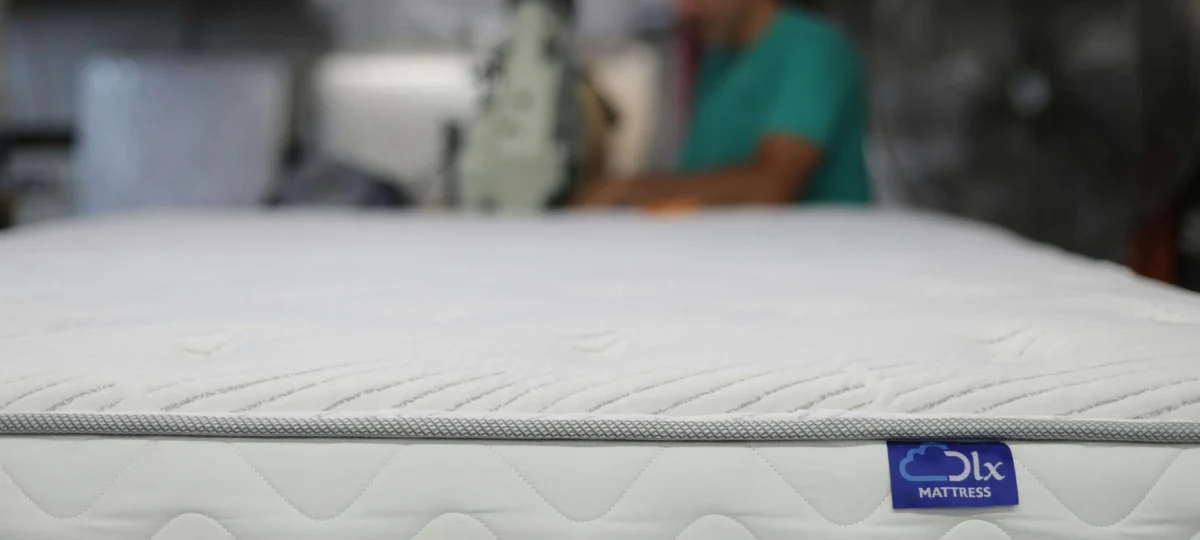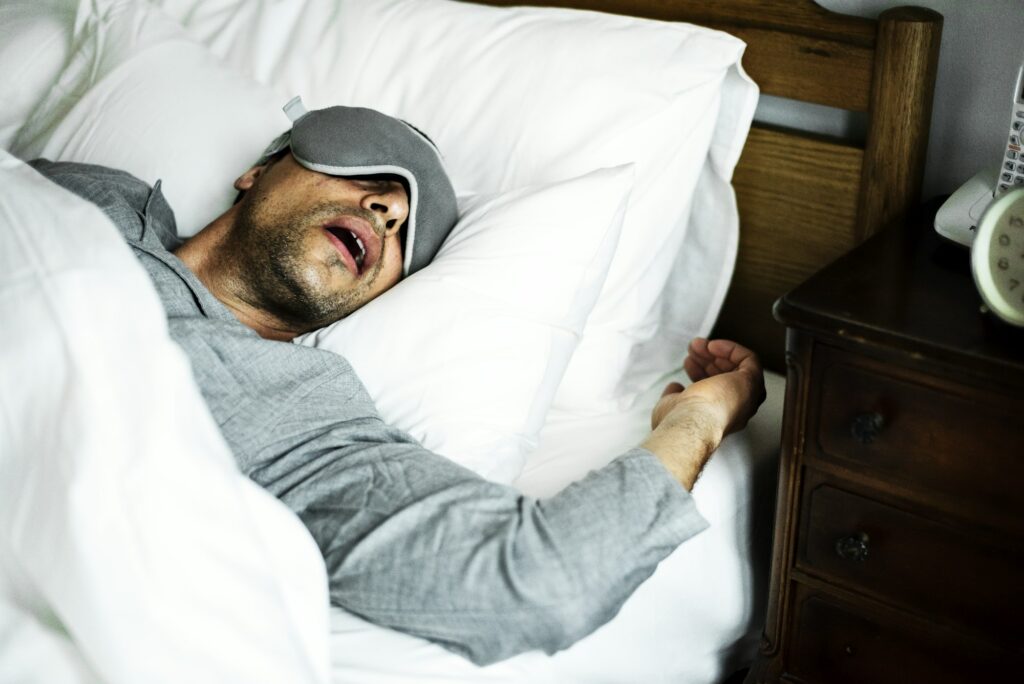Every purchase made online is encrypted with a high level of security you’ve come to expect. Your private information is never shared nor sold, so you can buy with confidence. You can also visit our store if you are in the St. Louis area.

A good night’s sleep is priceless. It’s the key to feeling your best every day. Your mattress plays a big role in this. It supports your body, helps you relax, and ensures you wake up refreshed. But, how often should you buy a new mattress? Most people change theirs every 7-10 years. However, this can vary. Factors like the type of mattress and how well you take care of it can make a difference.
Table of Contents
Signs It’s Time To Buy A New Mattress

Physical Indicators
First, take a good look at your mattress. Is it sagging or showing indentations? These are clear signs it’s worn out. Do you feel lumps or uneven surfaces? This is another red flag. Also, check the fabric. If it’s torn or worn out, it might be time for a new one.
Personal Comfort
How do you feel when you wake up? If you often have aches and pains, your mattress could be to blame. Are you struggling with poor sleep quality or insomnia? A worn-out mattress might be the cause. Do you toss and turn all night? That’s another hint you need a new mattress.
Age of Mattress
The age of your mattress matters too. Different types have different lifespans. Memory foam mattresses usually last about 7-10 years. Innerspring mattresses can last around 8 years. Latex mattresses often last up to 15 years. Manufacturers and sleep experts agree on these general guidelines. So, if your mattress is older than these ranges, it might be time to start shopping for a new one.
Factors Affecting Mattress Longevity
Several factors influence how long your mattress will last. Let’s break them down.
Quality of Materials
The quality of materials used in your mattress is crucial. Higher-quality materials typically last longer. Cheaper materials, on the other hand, wear out faster. Investing in a good mattress can save you money in the long run.
Maintenance and Care
How you care for your mattress affects its lifespan. Regular cleaning is essential. Vacuum your mattress to remove dust and allergens. Use a mattress protector. It shields your mattress from spills and stains. Rotate your mattress every few months. This helps prevent sagging and keeps it in good shape.
Frequency of Use
How often the mattress is used also matters. Is it your primary bed or a guest bed? A guest bed gets less use and lasts longer. Do you sleep alone or with a partner? Couples put more wear and tear on a mattress. The weight and size of sleepers also affect the mattress. Heavier individuals may need to replace their mattresses sooner.
Health Considerations
Your health is closely linked to the quality of your mattress. Let’s look at why.
Allergies and Hygiene
Mattresses can harbor dust mites and allergens. This can worsen allergies and asthma. Over time, sweat and body oils accumulate in your mattress. This can create an unhealthy sleeping environment. Regular cleaning and using a mattress protector can help, but eventually, you will need to replace your mattress.
Medical Conditions
A bad mattress can contribute to back pain. It can also affect your spinal alignment. If you wake up with back pain, your mattress may be the culprit. Some conditions require specific types of mattresses. For instance, orthopedic mattresses provide better support for those with certain medical issues. If your current mattress isn’t meeting your health needs, it’s time for a new one.
Evaluating Your Sleep Needs

Finding the right mattress starts with knowing your sleep needs. Everyone is different, so consider what works best for you.
Personal Sleep Preferences
First, think about firmness. Some people like a firm mattress. Others prefer something softer. Your sleep position matters too. Side sleepers often need more cushioning. Back sleepers usually need medium support. Stomach sleepers might need a firmer surface to prevent sinking.
Lifestyle Changes
Lifestyle changes can also impact your sleep needs. Have you gained or lost weight? Your mattress might need to change too. A new sleeping partner can also mean new sleep needs. You might need a mattress that minimizes motion transfer. Pregnancy is another big change. Expecting mothers often need extra support and comfort.
Mattress Shopping Tips
Ready to buy a new mattress? Here are some tips to make the process easier and help you find the perfect mattress.
- Research and Reviews: Start with research. Look at online reviews and ratings. They can give you an idea of what to expect. Consulting with sleep experts can also provide valuable insights. They can help you find a mattress that suits your needs.
- Budget Considerations: Think about your budget. Mattress prices vary widely. Some types are more expensive than others. But remember, cost often reflects quality and longevity. It might be worth spending a bit more for a mattress that lasts longer and offers better comfort.
- Testing the Mattress: Don’t skip testing the mattress. In-store testing can give you a feel for what you like. Many stores offer trial periods. These let you sleep on the mattress at home. Return policies are important too. Make sure you can return the mattress if it doesn’t work out.
- Warranty and Guarantee: Finally, understand the warranty and guarantee. Know the terms. What is covered and for how long? A good warranty can give you peace of mind. It’s a sign the company stands behind their product.
Sustainable and Eco-Friendly Options

Choosing a mattress that’s good for the environment can also be good for you. Here are some things to consider if it’s time to buy a new mattress.
- Organic Materials: Look for mattresses made from organic materials. Natural latex, organic cotton, and wool are great choices. They are free from harmful chemicals. They are also more breathable and comfortable.
- Eco-friendly Brands and Certifications: Some brands focus on eco-friendly practices. These companies use sustainable materials and production methods. Check for certifications like Global Organic Textile Standard (GOTS) or GreenGuard. These show that the mattress meets strict environmental standards.
- Recycling and Disposal of Old Mattresses: Don’t forget about your old mattress. Instead of sending it to a landfill, look for recycling options. Some companies offer take-back programs. They will pick up your old mattress and recycle it. This is a great way to reduce waste and help the planet.
Conclusion
Your mattress plays a big role in your health and well-being. If it’s showing signs of wear, it might be time for a new one. Consider the quality of materials, how you care for it, and how often you use it. Pay attention to your health and comfort. Evaluate your sleep needs and any lifestyle changes. When shopping, do your research, think about your budget, and test the mattress.
Remember, a good night’s sleep is priceless. At STL Beds, we have a wide range of mattresses to suit your needs. We also offer eco-friendly options and recycling programs. So, why wait? Assess your current mattress and sleep quality. Make an informed decision. And consider buying your next mattress from STL Beds. You’ll sleep better for it.
